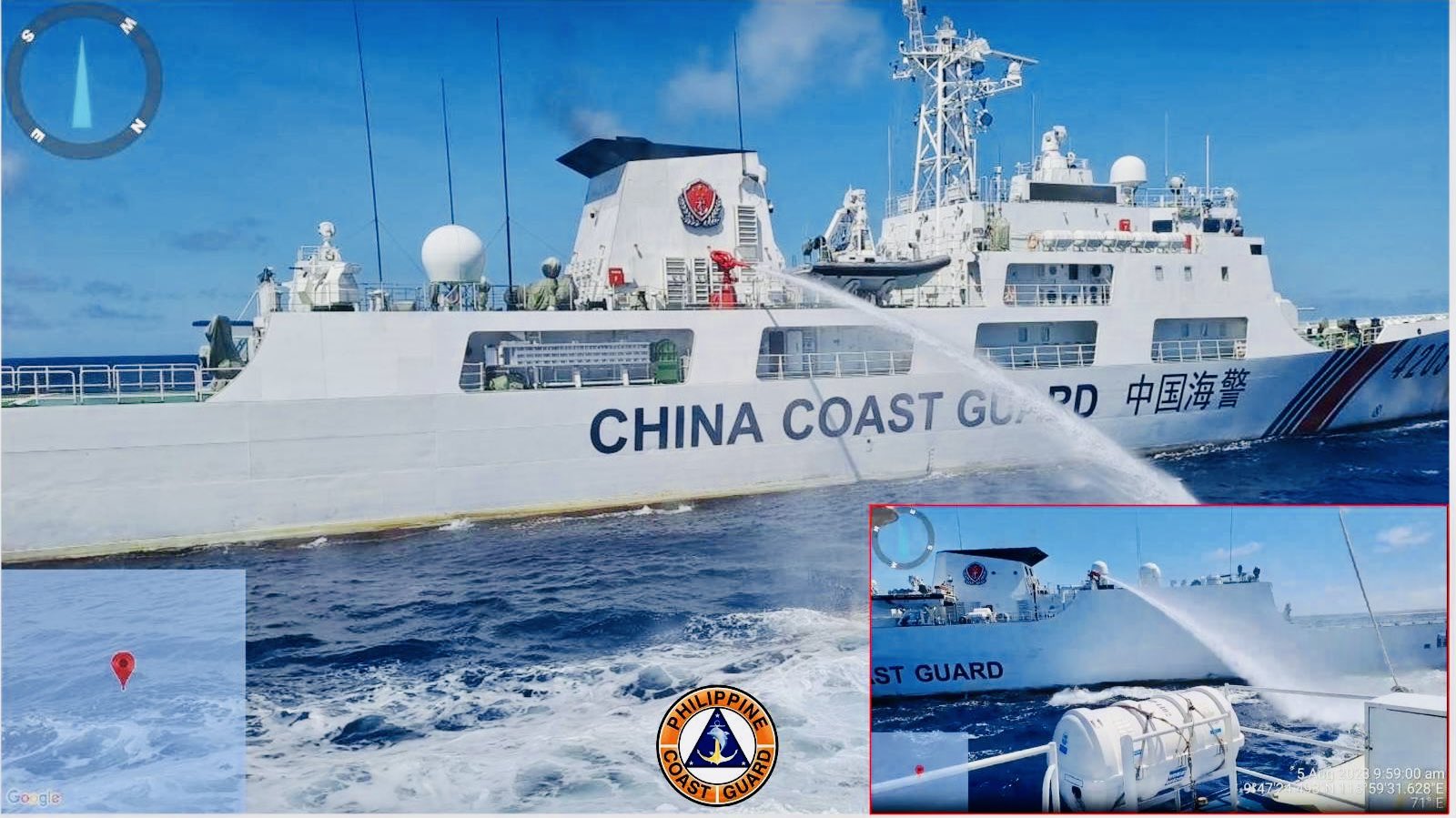German embassy deplores use of water cannons vs PH supply vessels
By Raymund Antonio and Raymund Antonio
The Germany Embassy in the Philippines has added its voice to the growing international uproar against a Chinese Coast Guard (CCG) ship for firing water cannons at Philippine supply vessels in the disputed South China Sea.
 China Coast Guard blocked and used water cannon on Philippine supply ships in Ayungin Shoal in the West Philippine Sea on Saturday, Aug. 5, 2023. (PCG photo)
China Coast Guard blocked and used water cannon on Philippine supply ships in Ayungin Shoal in the West Philippine Sea on Saturday, Aug. 5, 2023. (PCG photo)
In a statement, the embassy expressed concern over what it said CCG’s use of water cannons and employing “dangerous maneuvers” within the Philippines’ exclusive economic zone (EEZ).
“We urge all parties to respect the rules-based international maritime order,” it said, citing the 1982 United Nations Convention on the Law of the Sea (UNCLOS) and 1972 Convention on the International Regulations for Preventing Collisions at Sea (COLREGS), with the “2016 Arbitral Award at its center.”
The Philippine Coast Guard (PCG) has already released videos of the August 5 maritime incident wherein the CCS fired water cannon and blocked Philippine vessels going to Ayungin (Second Thomas) Shoal.
This latest attack by China’s coast guard were on PCG and Philippine Navy vessels en route to military troops stationed in BRP Sierra Madre for a resupply mission.
Just a day after the incident, the governments of United Kingdom (UK), Australia, Japan, Canada, and the European Union (EU) already released statements calling out China’s “unacceptable” and “destabilizing” maneuvers in waters within the country’s EEZ.
The United States also condemned the Chinese actions and reiterated that it would invoke its mutual defense treaty obligations with the Philippines.
“The United States reaffirms an armed attack on Philippine public vessels, aircraft, and armed forces — including those of its Coast Guard in the South China Sea — would invoke US mutual defense commitments under Article IV of the 1951 US Philippines Mutual Defense Treaty,” US State Department spokesperson Matthew Miller said in a statement.
The Embassy of Germany stressed that the disputes must be “resolved peacefully not by force or coercion.”
The decades-long dispute between China and other claimants of the maritime areas in South China Sea seemed to have ended after the 2016 Arbitral Tribunal victory that invalidated the basis of Beijing’s claims in the region.
However, China refused to acknowledge the tribunal ruling, insisted on its ownership of the waters, islands, atolls, and features of the region, and repeatedly asked the United States, among other countries, not to interfere in regional matters.